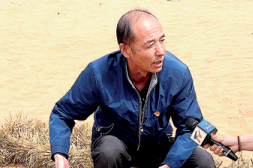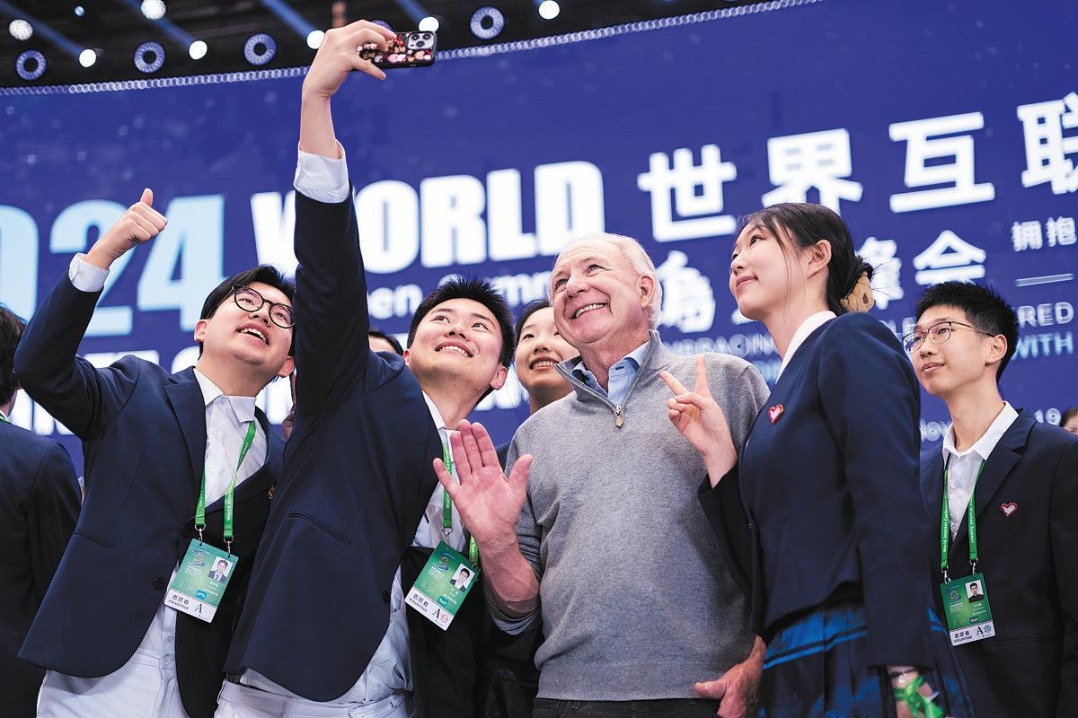BRI youth network launched at forum

Global youth leaders should strengthen cooperation, grasp opportunities and unleash their creativity to advance the high-quality development of the Belt and Road Initiative as it enters its second decade of growth, participants of a BRI forum said on Monday.
At the third Belt and Road Youth Development Summit held in the Hong Kong Special Administrative Region, local organizations set up a Belt and Road Youth Network — a global database and communication platform that provides updates on activities and information for young people that are relevant to the BRI.
The conference attracted 6,000 political and business leaders, as well as corporate representatives from countries and regions involved in the initiative, including more than 200 students who were awarded the Belt and Road Scholarship offered by the HKSAR government.
Liu Guangyuan, deputy director of the Liaison Office of the Central People's Government in the HKSAR, said it's important for young people to unite in addressing global risks and challenges, push for high-quality BRI development and inject youthful energy into the initiative.
Describing Hong Kong's young people as the "driving force" in jointly building a better world under the BRI framework, he urged them to uphold the spirit of the Silk Road — openness, inclusiveness, mutual learning and mutual benefit.
Playing a crucial role in the initiative, the HKSAR serves as a vital link between the Chinese mainland and other participating members, possessing distinctive advantages in offering professional services and fostering cultural exchanges, Liu said.
He envisioned that, in the next decade of development, the initiative will be more innovative, dynamic, open and inclusive, opening new windows of opportunity for the international community.
He said youths must firmly seize the opportunities presented by the initiative's high-quality development, actively engage in cultural exchanges and lay a good foundation for broader cooperation in policies, infrastructure, trade and people-to-people exchanges.
Cheng Cheung-ling, president of the Belt and Road General Chamber of Commerce, said that for young people, the initiative isn't just a grand framework for international cooperation, but also a stage full of life opportunities. She hopes young people can serve the world's population better through technological innovation in the era of artificial intelligence.
Hong Kong's Chief Secretary for Administration Eric Chan Kwok-ki emphasized that young people are the future, hope and backbone of society, as well as the driving force for the sustainable development of the initiative.
He said Hong Kong will continue to play a vital role as a platform for the initiative, and remain committed to promoting an open economic system, pioneering new productive forces and cooperation in emerging fields through the city's advantages, and offering greater development opportunities for young people.
Chan pledged the SAR government will continuously promote various internship and exchange programs for young people from BRI member countries and regions, with about 1,800 placements to be provided in the 2024-25 fiscal year.
The summit's organizer also arranged various sub-forums for participants to discuss various topics such as addressing challenges amid geopolitical tensions and expanding cooperation in emerging areas, and so on.





































